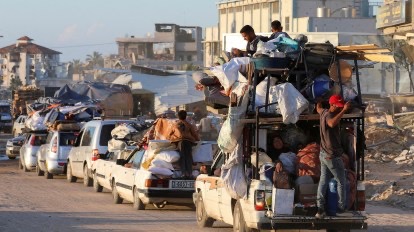Israeli military’s tanks pushed into the southern Gazan town of Rafah after a night of airstrikes on the Palestinian enclave. The Israeli military seized control of the Rafah border crossing between the Gaza Strip and Egypt on Tuesday, May 7, and its tanks pushed into the southern Gazan town of Rafah after a night of airstrikes on the Palestinian enclave. The Israeli offensive took place as mediators struggled to secure a ceasefire agreement between Israel and its Hamas foes and as the conflict entered its eighth month. The Palestinian militant group, Hamas, said late on Monday it had agreed to a ceasefire proposal but Israel said the terms did not meet its demands. Israeli military enters Rafah: Latest updates
1.The Israeli 401st Brigade entered the Rafah crossing early Tuesday morning, the Israeli military said, taking “operational control” of the crucial crossing. It’s the main route for aid entering the besieged enclave and exit for those able to flee into Egypt.
2.The Israeli incursion overnight appeared to be short of the full-fledged offensive into Rafah that Israel has planned, and it was not immediately known if it would be expanded. President Joe Biden on Monday urgently warned Israeli Prime Minister Benjamin Netanyahu against launching an offensive on the southern Gaza city, hiking pressure for a ceasefire.
3.The UN humanitarian aid agency said Israeli authorities have denied it access to the Rafah crossing between Gaza and Egypt that is now in the control of the Israeli Defense Forces. “Rafah is in the crosshairs,” said Jens Laerke, spokesman for the UN Office for the Coordination of Humanitarian Affairs, at a regular briefing in Geneva. Aid groups say an attack would be catastrophic for the around 1.4 million Palestinians crammed into Rafah, most of whom fled Israel’s onslaught elsewhere in Gaza.
4.Jens Laerke, a spokesman for the UN humanitarian affairs office, warned that an assault on Rafah could break the fragile aid operation. He said all fuel entering Gaza comes through Rafah, and any disruption will halt humanitarian work. “It will plunge this crisis into unprecedented levels of need, including the very real possibility of a famine,” he said.



